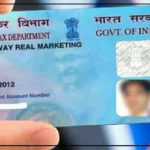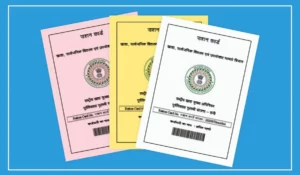Even though most payments today are digital, many people still use cash — for household expenses, gifts, or business deals.
But did you know there’s a legal limit on how much cash you can give or receive in a day? Crossing that limit could get you a tax notice and a heavy penalty.
Government Gets Strict on Cash Deals
To stop black money and tax evasion, the Income Tax Department is keeping a close eye on cash transactions.
Many people unknowingly deposit or withdraw large sums and end up violating the rules.
So, it’s important to know how much cash you can legally handle in a day.
Under Section 269ST of the Income Tax Act, you can only give or receive up to ₹2 lakh in cash per day from a single person.
This applies to everything — gifts, loans, or business payments.
If you accept or pay more than ₹2 lakh in cash, the department can take action and send you a notice.
Penalties Can Be Huge
If you break this rule, the fine is equal to the amount received in cash. For example, if you receive ₹2.5 lakh in cash, you could be fined ₹2.5 lakh.
This penalty — under Section 271DA — applies to the person receiving the money, not the one paying it.
Why This Rule Exists
Large cash payments are hard to track.
To make transactions transparent, the government wants major payments to go through banks, cheques, or digital modes.
Even personal transfers — like giving money to relatives — can be investigated if the amount exceeds ₹2 lakh.
How the Tax Department Tracks Transactions
The Income Tax Department now uses AI-based monitoring to track cash movements.
If your savings account deposits or withdrawals go beyond ₹10 lakh a year, or your current account crosses ₹50 lakh, the system raises an alert.
Even multiple smaller deposits below ₹2 lakh can look suspicious if they seem like an attempt to avoid the limit.
The department also keeps an eye on:
- Cash deposits over ₹10 lakh in a year
- Credit card bills paid in cash over ₹1 lakh
- Property bought or sold in cash worth ₹30 lakh or more
- Cash gifts over ₹50,000
- Business payments received in cash above ₹2 lakh
How to Stay Safe from a Tax Notice
To avoid trouble, follow a few simple rules:
- Make all big payments through banks or digital methods.
- Keep receipts and records of all major transactions.
- For gifts or loans, have written proof.
- Always stay within your cash transaction limit.
In this era of Digital India, using online payment methods is not just convenient — it’s smart.
Income Tax Department is watching cash transactions closely, so it’s best to play safe.
Stay informed, follow the rules, and avoid penalties.

























